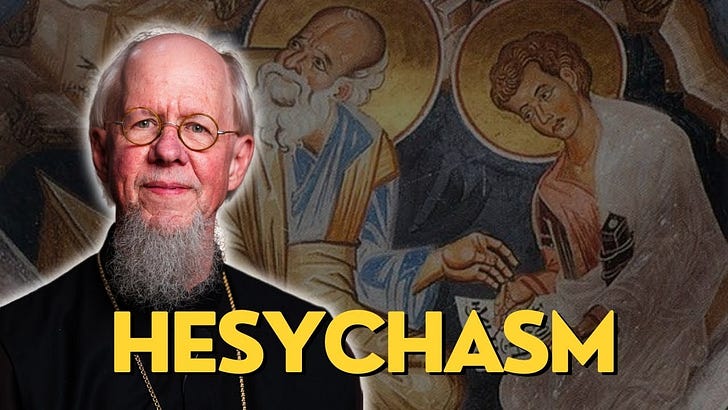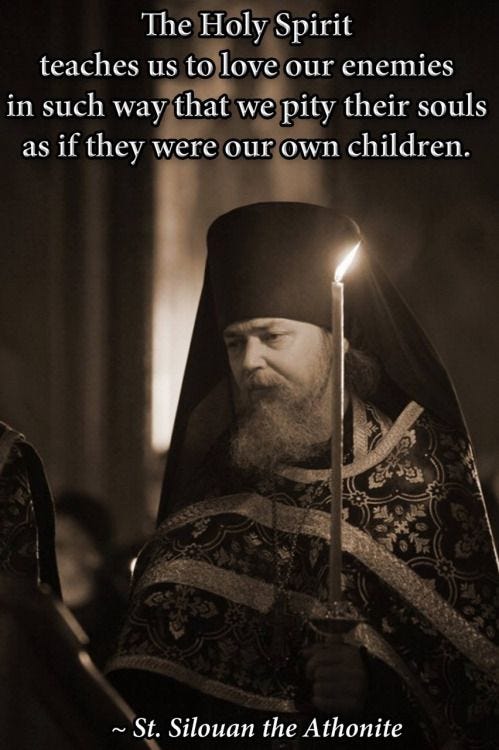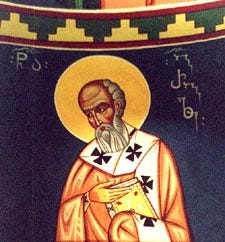Proverbs 10, 3, 8 (Vespers, 1st reading)
1 The memory of the righteous is with praise and the blessing of the Lord is upon his head. Blessed is the man who has found wisdom and the mortal who has understanding. For it is better to purchase her than treasuries of gold and silver. She is more precious than precious stones and all that is precious is unworthy of her. For length of days and years of life are in her right hand; and in her left hand are riches and glory. Out of her mouth proceeds righteousness and she bears law and mercy upon her tongue.
2 Hear me, O child, for I will speak noble things. Blessed is the man who keeps my ways, for my ways are the ways of life, and in them is prepared favor from the Lord. Therefore, I pray thee, and utter my voice to the sons of men: For I, wisdom, have dwelt with counsel and knowledge and I have called upon understanding. Counsel and safety are mine, understanding and strength are mine. I love those who love me and those seeking me shall find grace.
3 Understand craftiness, O you who are simple, and imbibe knowledge, you who are untaught. Hear me again, for I will speak noble things: I will open my mouth and from my lips shall come what is right. For my throat shall meditate truth; false lips are an abomination before me. All the words of my mouth are righteous; there is nothing in them that is twisted or perverse. They are all straight to him who understands and right to those who find knowledge.
4 I shall instruct you in truth, so that your hope will be in the Lord and you shall be filled with the Spirit.
John 10:9-16 (Gospel, Saint)
9 I am the door. If anyone enters by Me, he will be saved, and will go in and out and find pasture.
10 The thief does not come except to steal, and to kill, and to destroy. I have come that they may have life, and that they may have it more abundantly.
11 I am the good shepherd. The good shepherd gives His life for the sheep.
12 But a hireling, he who is not the shepherd, one who does not own the sheep, sees the wolf coming and leaves the sheep and flees; and the wolf catches the sheep and scatters them.
13 The hireling flees because he is a hireling and does not care about the sheep.
14 I am the good shepherd; and I know My sheep, and am known by My own.
15 As the Father knows Me, even so I know the Father; and I lay down My life for the sheep.
16 And other sheep I have which are not of this fold; them also I must bring, and they will hear My voice; and there will be one flock and one shepherd.
St. Gregory the Theologian, Archbishop of Constantinople (389)
Saint Gregory the Theologian, Archbishop of Constantinople, a great Father and teacher of the Church, was born into a Christian family of eminent lineage in the year 329, at Arianzos (not far from the city of Cappadocian Nazianzos). His father, also named Gregory (January 1), was Bishop of Nazianzus. The son is the Saint Gregory Nazianzus encountered in Patristic theology. His pious mother, Saint Nonna (August 5), prayed to God for a son, vowing to dedicate him to the Lord. Her prayer was answered, and she named her child Gregory.
When the child learned to read, his mother presented him with the Holy Scripture. Saint Gregory received a complete and extensive education: after working at home with his uncle Saint Amphilochius (November 23), an experienced teacher of rhetoric, he then studied in the schools of Nazianzos, Caesarea in Cappadocia, and Alexandria. Then the saint decided to go to Athens to complete his education.
On the way from Alexandria to Greece, a terrible storm raged for many days. Saint Gregory, who was just a catechumen at that time, feared that he would perish in the sea before being cleansed in the waters of Baptism. Saint Gregory lay in the ship’s stern for twenty days, beseeching the merciful God for salvation. He vowed to dedicate himself to God, and was saved when he invoked the name of the Lord.
Saint Gregory spent six years in Athens studying rhetoric, poetry, geometry, and astronomy. His teachers were the renowned pagan rhetoricians Gymorias and Proeresias. Saint Basil, the future Archbishop of Caesarea (January 1) also studied in Athens with Saint Gregory. They were such close friends that they seemed to be one soul in two bodies. Julian, the future emperor (361-363) and apostate from the Christian Faith, was studying philosophy in Athens at the same time.
Upon completing his education, Saint Gregory remained for a certain while at Athens as a teacher of rhetoric. He was also familiar with pagan philosophy and literature.
In 358 Saint Gregory quietly left Athens and returned to his parents at Nazianzus. At thirty-three years of age, he received Baptism from his father, who had been appointed Bishop of Nazianzus. Against his will, Saint Gregory was ordained to the holy priesthood by his father. However, when the elder Gregory wished to make him a bishop, he fled to join his friend Basil in Pontus. Saint Basil had organized a monastery in Pontus and had written to Gregory inviting him to come.
Saint Gregory remained with Saint Basil for several years. When his brother Saint Caesarius (March 9) died, he returned home to help his father administer his diocese. The local church was also in turmoil because of the Arian heresy. Saint Gregory had the difficult task of reconciling the bishop with his flock, who condemned their pastor for signing an ambiguous interpretation of the dogmas of the faith.
Saint Gregory convinced his father of the pernicious nature of Arianism, and strengthened him in Orthodoxy. At this time, Bishop Anthimus, who pretended to be Orthodox but was really a heretic, became Metropolitan of Tyana. Saint Basil had been consecrated as the Archbishop of Caesarea, Cappadocia. Anthimus wished to separate from Saint Basil and to divide the province of Cappadocia.
Hesychasm - The Monastic Tradition of Orthodox Christianity
Fr. John Bethancourt shares an insight into the contemplative Monastic tradition known as Hesychasm; a divine quietness or stillness that is still practiced to this day by Orthodox Christian monks. Fr. John Bethancourt (Retired) is Founding Pastor of Holy Trinity Orthodox Church, Santa Fe, NM.
This week’s calendar reminders:
Monday 1/20: Matins 8:30 am
Tuesday 1/21: no services or events
Wednesday 1/22: no services or events
Thursday 1/23: Matins 8:30 am; Men’s Group 7 pm
Friday 1/24: Matins 8:30 am
Saturday 1/25: Catechumen Class 4:30 pm; Great Vespers 6 pm
Sunday 1/26: Divine Liturgy 9:15am
CLICK BELOW to donate online:
Christ the Savior Orthodox Church is located in Southbury, Connecticut, and is part of the New England Diocese of the Orthodox Church of America.
Mailing address: Christ the Savior Church, 1070 Roxbury Road, Southbury, CT 06488
PLEASE DONATE to help our parish do the work of the Lord, thrive and grow, and extend the Kingdom of God. May the Lord bless your generosity!
Fr. Moses Locke can be reached at frmoseslocke@gmail.com










